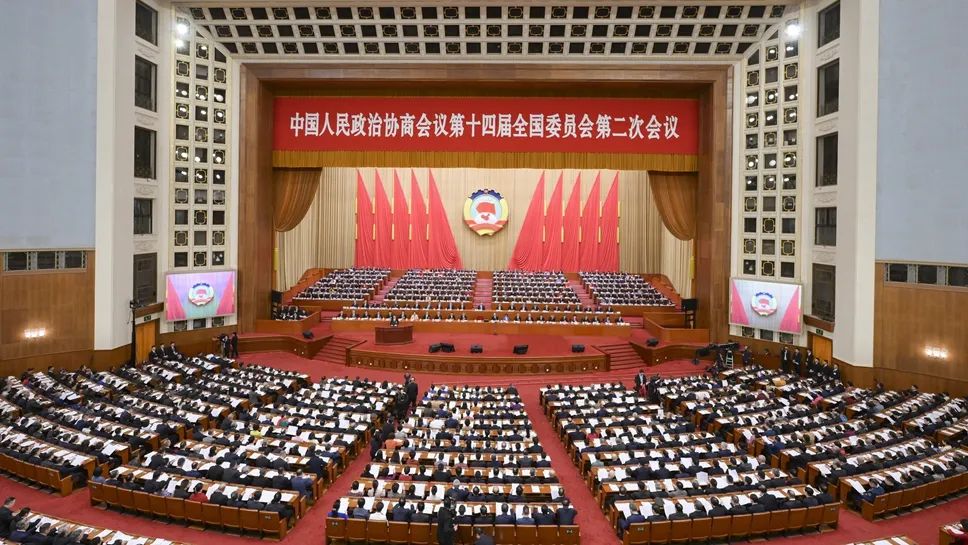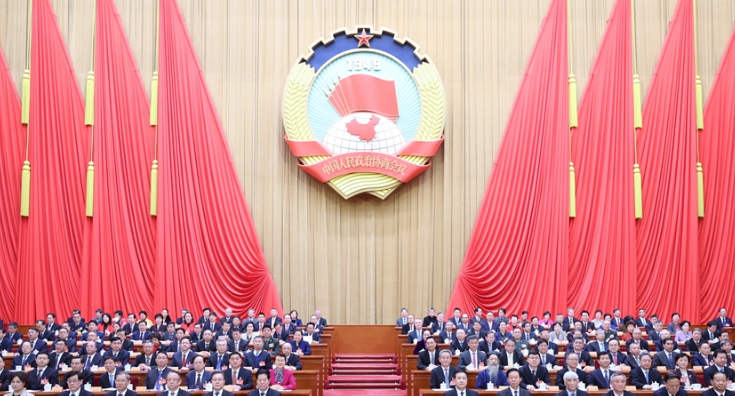
来土耳其种上一撮小胡子
Need a Mustache Transplant? Visit Turkey
Turkey's economy is getting hairier, as a booming medical sector profits from a growth spurt: mustache transplants.
随着生意兴隆的医疗行业迎来唇髭移植业务的快速增长,土耳其的经济变得愈加繁荣。
Long favored as a destination for the follicly challenged, Turkey's cosmetic surgeons have for years offered hair implants to those who are balding on top. Now hair transplants for the face are growing in popularity, cosmetic surgeons and tourism agencies say, with men from the Middle East, Europe and Asia coming to Istanbul seeking a virile addition for the upper lip.
长期以来,土耳其一直是毛发不荣者最爱去的地方,那里的整容医生为谢顶人群植发已有多年历史。据整容医生和旅行社说,胡须移植现在越来越受欢迎,中东、欧洲和亚洲的男性纷纷来到伊斯坦布尔,希望在上唇上增加一些男子气。
The procedure uses a technique called follicle-hair extraction, in which doctors remove clusters of hair from the more hirsute areas of the body and implant them along the lip or cheeks to magnify a mustache or beef-up a beard.
移植过程采用了一种名叫“毛囊提取”的技术。利用这种技术,医生从人体上毛发更多的部位摘下一簇簇毛发,移植到唇边或脸颊上,让小胡子或大胡子变得更加浓密。
Performed under local anesthetic, the surgery takes around five hours and can cost up to $5,000, cosmetic surgeons say. Tourism agencies have begun offering 'transplant packages' combining facial-hair operations with a shopping vacation in Istanbul or beachside retreat on the Mediterranean coast.
据整容医生说,手术采用本地麻药,耗时约五个小时,价格高的可达5,000美元(约合人民币31,000元)。旅行社已经开始推出“植须游”,将植须手术与伊斯坦布尔购物、或地中海沙滩静养打包成旅游套餐。
Most customers are foreigners, according to surgeons, as Turkey's emergence as a place for facial-hair transplants comes as the number of Turks wearing mustaches has declined sharply.
医生说,客户多是外国人,因为在土耳其成为胡须移植胜地的时候,留小胡子的土耳其人就已经大大减少。
Selahattin Tulunay is one of the surgeons profiting from this bewhiskered boom. From his surgery clinic in an upscale neighborhood known as Istanbul's Beverly Hills, Dr. Tulunay started facial follicle transplants two years ago and now says he completes up to 60 such operations a month.
外科医生在这种植须热中受益匪浅,塞拉赫丁•图卢伊纳(Selahattin Tulunay)就是其中的一位。图卢伊纳的外科诊所位于一个被称为伊斯坦布尔之比佛利山的上流社区。他两年前开始做胡须移植术,据他说现在这种手术一个月多的时候可以完成60例。
'The mustache is making a comeback. If a man's mustache doesn't grow, he wants to know he can have one as a mark of masculinity,' he said, leafing through a photo album showcasing his most-prized creations.
他翻阅着一本展示其最珍视作品的相册说:“小胡子正在卷土重来。如果一个男人的小胡子长不起来,他就想知道自己可以植上小胡子来显示男子气概。”
'Our customers know that if they pay, we can deliver the results,' he said.
他说:“我们的客户知道,只要他们花钱,我们就可以实现他们的愿望。”
A 34-year-old businessman from Erbil, in northern Iraq, said he traveled to Dr. Tulunay's surgery clinic after years of low self-esteem over the patchy hair growth on his upper lip.
一位来自伊拉克北部埃尔比勒省的34岁商人说,来到图卢伊纳诊所之前,他因为上唇的胡子长得七零八落而自卑了多年。
'The mustache is very important in our culture and my wife supported me to get the operation. Now I feel much better. I've recommended it to my friends,' he said.
他说:“唇髭在我们的文化中非常重要,我妻子支持我做这次手术。现在我感觉好多了。我已经向我的朋友们做了推荐。”
Facial-hair transplants are at the fringe of a broader health-care tourism boom in Turkey, which last year generated $1 billion in revenues. The number of visitors Turkey welcomed specifically for surgical procedures rose to 270,000 last year from 156,000 in 2011, according to data from a 2012 report by Turkey's Health Ministry.
胡须移植只是土耳其整个医疗旅游热的一个缩影,去年医疗旅游行业产生了10亿美元的收入。土耳其卫生部2012年的一份报告显示,该国专为外科手术接待的游客数量从2011年的15.6万人次上升至去年的27万人次。
The report showed 100,000 people traveled to Turkey specifically for plastic surgery in 2012, although the numbers don't break out figures for facial-hair transplants.
报告显示2012年专为接受整形手术前往土耳其的游客有10万人次,不过这些数字当中没有胡须移植术的细分数据。
The mustachioed and bearded stars of Turkish soap operas -- wildly popular across the Middle East, North Africa and the Balkans -- have helped repopularize facial hair as a symbol of virility and machismo. Surgeons say many patients request the full-bodied mustache worn by Turkish singer Ibrahim Tatlises, which has long set the standard for top-drawer whiskers. Another popular style is the stubble beard worn by Turkish TV show heartthrob and model Kivanc Tatlitug, surgeons say.
土耳其肥皂剧在中东、北非和巴尔干半岛广为流行,剧中胡须繁茂的明星从一个方面使得胡须作为男子气概的象征再度普及。外科医生说,很多病人都要求植上土耳其歌手易卜拉辛•塔特利塞斯(Ibrahim Tatlises)那样浓密的小胡子。他的胡子很久以来都是上等胡须的标准。据外科医生说,另一种受欢迎的样式则是土耳其电视剧偶像明星兼模特克万奇•塔特利图(Kivanc Tatlitug)留的那种短茬络腮胡。
'My patients often bring pictures of the stars they want to look like, but I never do what they say because it wouldn't suit their face,' says Canan Melike Koksuz, a surgeon at Isom, an Istanbul cosmetic surgery practice, which says it has welcomed chief executives and celebrities from as far away as China and Australia for hair transplants.
伊斯坦布尔整容机构Isom的外科医生贾南•梅利克•科克苏兹(Canan Melike Koksuz)说:“我的病人经常带上他们想要模仿的明星的照片,但我从来不按他们说的去做,因为那种胡须跟他们的脸孔不搭。”据Isom表示,其毛发移植术接待过远至中国、澳大利亚的企业老总和名人客户。
'Once there was less demand because facial hair was more political, but now mustaches and beards are more fashionable, and people want to look trendy,' she says.
科克苏兹说:“过去的需求没这么大,因为胡须更多是政治性的,但现在小胡子和大胡子都变得更加时尚起来,大家都想有一个时髦的外表。”
It isn't only men who are seeking ways to emulate Turkey's rising stars. Clinics in the Middle East have reported that Arab women, who previously favored the full lips, small noses and protruding cheekbones of Lebanese singers, are now requesting the more natural looks of Turkish soap stars.
不只是男性在想方设法地模仿土耳其明星。中东地区的诊疗机构曾说,以前喜欢黎巴嫩歌手那种厚嘴唇、小鼻子和高颧骨的阿拉伯妇女,现在都要求整成土耳其肥皂剧明星那种更加自然的相貌。
'Turkish TV series have introduced the natural look. Women who had nose remodeling operations in the past are now unhappy with the shape; they want their tip-tilted noses to look more natural,' says Zekeriya Kul, a plastic surgeon who says he recently moved from Dubai to his native Turkey to profit from the surgery boom.
整形医生泽克里亚•卡尔(Zekeriya Kul)说:“土耳其电视连续剧促成了自然容貌的流行。以前做过鼻型重塑手术的女性现在对鼻型不满意了,她们想让自己的翘鼻子看起来更加自然。”卡尔说,他前不久从迪拜搬回老家土耳其,为的就是利用这种手术热赚钱。
Some surgeons warn of a darker side to the industry's expansion -- the emergence of cowboy operators unqualified to operate on patients. Dr. Melike Koksuz says some patients have complained to the health ministry, which has issued fines or shuttered unlicensed clinics. The ministry confirmed the government has seen cases of poor surgery but didn't elaborate on official penalties.
一些医生也提到了行业扩张的阴暗面,即大量无手术资质的赤脚医生涌现出来。科克苏兹说,有些病人向卫生部举报,无证诊所会遭到罚款或关闭的处罚。卫生部证实政府遇到过手术质量低的例子,但没有详述官方的处罚措施。
'The problem for patients is that they see a website and buy the product. They don't know until after the operation that there was a problem,' Dr. Melike Koksuz says.
科克苏兹说:“病人的问题在于他们看到一家网站就买了产品,直到手术过后他们才发现存在问题。”
According to surgeons and agencies specializing in transplant tourism, the vast majority of the clients come from the Middle East, where facial hair still bristles with political meaning.
据外科医生和专做植须旅游的旅行社说,绝大部分客户都来自中东。在中东地区,胡须仍然有着丰富的政治含义。
To be clean shaven has for decades been a political statement of solidarity with the secular, Westernizing elites who were pre-eminent across much of the Arab world until the series of uprisings that came to be known as the Arab Spring.
数十年来,刮光胡须一直是与世俗、西化精英团结一致的政治宣言。在后来被称作“阿拉伯之春”的系列起义发生之前,这些西化精英们一直在阿拉伯世界很多地方占据绝对支配地位。
Despite Turkey's emergence as a hub for facial hair transplants, the number of Turkish men wearing mustaches has declined rapidly, according to pollsters. A study by Istanbul's TNS Market Research Company found that while 77% of Turkish men had mustaches in 1993, the figure fell to 34% in 2011 and is still sliding.
虽然土耳其成了胡须移植手术的中心,但调查显示,该国国内留小胡子男子的数量已经迅速下降。伊斯坦布尔调查公司TNS Market Research Company的调查发现,1993年77%的土耳其男性留了小胡子,2011年只有34%,而且现在还在下降中。
The number wearing beards, by contrast, has risen to 24% from 18% over the same period, a sign for some that the country has become more religious under the decadelong leadership of the Islamist-rooted Justice and Development Party.
相比之下,同一时期留大胡子的男子数量则从18%上升到24%。在一些人看来,这说明经过有伊斯兰渊源的正义与发展党(Justice and Development Party)的10年领导,土耳其已经变得更加宗教化。
The grand mustaches of Turkish lore are these days a rarer sight in Turkey's gleaming office blocks and sprawling shopping malls. But many Turks still balk at the prospect of surgery to thicken one's whiskers.
如今在土耳其光鲜的写字楼地带和超大的购物广场上,传统的浓密唇髭已经变得更加少见。但很多土耳其人还是不肯通过手术来让胡须变得更加浓密。
'Personally, I'd be suspicious of a Turk who couldn't grow a mustache,' said Cengiz Altug, a salesman from Istanbul who has worn a bushy mustache for 35 of his 56 years. 'But if foreigners need to come anywhere for the operation, it should be here. The Turkish mustache is still the envy of the world.'
伊斯坦布尔56岁的销售员坚吉兹•阿尔图(Cengiz Altug)蓄了35年的浓密唇髭。他说:“就我个人而言,我会怀疑长不出小胡子的人是不是土耳其人。但如果外国人需要到某个地方做手术的话,那就该来这里。土耳其小胡子仍然为整个世界所艳羡。”
 天之聪教育
天之聪教育
 2013-05-22
2013-05-22
 天之聪教育
天之聪教育
 442次
442次


 点赞(0)
点赞(0)

 收藏
收藏

 收藏资讯
收藏资讯

 收藏资讯
收藏资讯

 收藏资讯
收藏资讯

 收藏资讯
收藏资讯